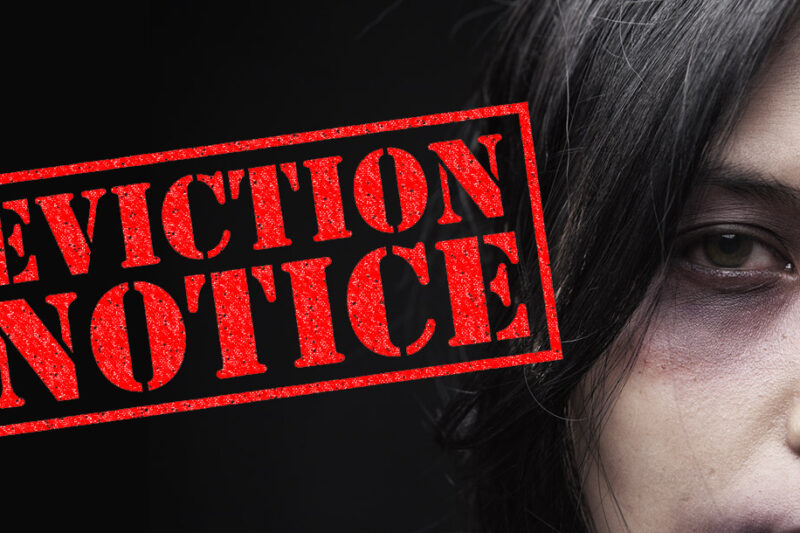
This piece originally appeared at .
Last August, Nancy Markham was shocked to learn that she and her children were about to be evicted. It wasnโt because she couldnโt make rent or because her children couldnโt keep the noise down. It was all because she called 911 when her ex-boyfriend, waving a knife, refused to leave her home in Surprise, Arizona.
The day after her call, a police officer informed Ms. Markhamโs property manager that she had contacted police again after other similar calls for help. While the officer acknowledged that all of the police responses to her home involved domestic violence perpetrated against Ms. Markham, he still urged the property manager to evict her.
Researchers concluded that properties in African-American neighborhoods were 3.5 times more likely to receive a nuisance citation than properties in majority white neighborhoods.
Like far too many domestic violence survivors, Ms. Markham found herself at the mercy of a local nuisance ordinance, which is in cities across the country. Under Surpriseโs , the city can declare a rental property a โnuisanceโ when there are four or more police calls within 30 days, or when two or more crimes occur there. The law makes no allowances for situations where tenants need emergency assistance, or where they are the victims of crime. The city can revoke the license of the landlord of a nuisance property and impose civil or criminal penalties.
Surprise, Arizona, however, isnโt unique. Itโs one of hundreds โ and likely thousands โ of cities that have adopted similar nuisance laws that punish landlords and tenants for 911 calls or criminal activity at a property. Pressured by these ordinances nationwide, many landlords evict their tenants to eliminate the โnuisance.โ Because intimate partner abuse makes up the largest category of police calls in most communities, the laws are particularly devastating to domestic violence victims, especially women of color.
Scholars at Harvard and Columbia universities that domestic violence was among the top reasons for a nuisance citation in Milwaukee. The researchers concluded that properties in African-American neighborhoods were 3.5 times more likely to receive a citation than properties in majority white neighborhoods. Victims were often evicted as a result. A St. Louis University professor also that domestic violence survivors stopped calling the police or were regularly evicted because of a nuisance ordinance there. Either way, the most vulnerable were left even more defenseless.
Domestic violence victims are not the only people trapped by these laws though. A recent analysis by the ภฯฐฤรลฟชฝฑฝแน๛ and Social Science Research Council revealed that two cities in upstate New York routinely ensnared tenants who reported other crimes โ including theft, assault, and rape โ or sought medical assistance. We also have seen these laws enforced in troubling ways against people with mental health disabilities.
Federal, state, and local governments have worked for decades to reform laws and policies to end victim-blaming and ensure that law enforcement treats domestic violence cases with the care they deserve. Local nuisance ordinances undermine these efforts and turn back the clock 30 years. They punish crime victims for seeking security for themselves, their families, and their communities. Worse, they empower abusers, who use the prospect of homelessness under these laws to harass and attack their victims with impunity.
But there are models for reform.
In Norristown, Pennsylvania, Lakisha Briggs was caught in Ms. Markhamโs predicament in 2012. After she was stabbed by her abuser and police were called, she was nearly evicted pursuant to the local ordinance. Following a challenge by the ภฯฐฤรลฟชฝฑฝแน๛ on her behalf, Norristown repealed the ordinance, and Pennsylvania enacted a state law that preempts local ordinances that penalize tenants and landlords who ask for emergency services. Surprise, Arizona, and other cities and states with these laws on the books should follow this example. The federal government must step up too, by continuing its of how these ordinances violate civil rights laws and addressing ongoing law enforcement discrimination against domestic violence survivors.
Nobody should experience the cruel surprise of discovering that city laws compel them to suffer violence in silence in order to keep their homes. Police protection is one of the most basic services the government provides. For domestic violence survivors, it may be their only means to safety.

